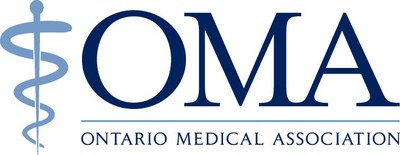CMA-Deloitte report reinforces the urgent need to reduce the backlog of medical services affecting millions of Ontario patients
TORONTO, Oct. 26, 2020 /CNW/ - With COVID-19 cases rising, the findings in the Deloitte report for the Canadian Medical Association (CMA) on the COVID-19-induced surgical backlog reinforce the serious concerns about patient care that the Ontario Medical Association (OMA) has been raising for several months.

"From March to September this year, there were approximately one-third fewer surgical procedures done in Ontario compared to the same period last year," said Dr. Samantha Hill, OMA President and cardiac surgeon. "Doctors are very concerned about the negative downstream effects that this backlog will have on patient health."
COVID-19 has increased Ontario's surgical backlog, as well as the backlog facing other specialists and family doctors and diagnostic services. At least 12.3 million fewer medical services were provided to patients from March to September than the same period last year — a decrease of 18 per cent. Of these, 7.8 million services would have been provided in community-based clinics and 4.5 million services would have been provided in hospitals.
"Clearing the backlog of surgical and other necessary medical services will take a huge financial commitment; the provinces and territories can't do it alone," said OMA CEO Allan O'Dette. "We firmly support Premier Doug Ford's call for the federal government to increase its health-care funding envelope so that patients don't have to wait a minute longer than necessary for the services they desperately need."
The OMA remains committed to working with all levels of the government to provide patients with the care that was delayed during COVID-19 and to reduce current wait times.
To address this backlog, the OMA has made several recommendations including significantly increasing funding to expand operating room hours and the number of beds, and using independent health facilities to create additional physical spaces where surgeries and procedures can be safely performed. This will also help alleviate pressures on hospitals that are already at capacity, enabling more procedures to occur.
These and other recommendations have been made in the OMA's recent 2020 Pre-Budget Submission to the provincial government, and in its September 30 paper entitled A Prescription for Ontario: Maintaining Vigilance as We Learn to Live with COVID-19.
"During the second wave of COVID-19, the OMA and government must work together to find solutions that support front-line care, address the health-care backlog, and help the health-care system recover," said Dr. Hill. "Collectively, we need to lead our system to better health. Doing so will also pave the way to a stronger and faster economic recovery."
About the OMA
The Ontario Medical Association represents Ontario's 43,000-plus physicians, medical students and retired physicians, advocating for and supporting doctors while strengthening the leadership role of doctors in caring for patients. Our vision is to be the trusted voice in transforming Ontario's health-care system.
SOURCE Ontario Medical Association
